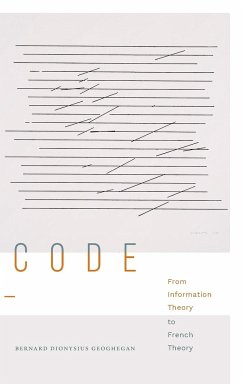In Code Bernard Dionysius Geoghegan reconstructs how Progressive Era technocracy as well as crises of industrial democracy and colonialism shaped early accounts of cybernetics and digital media by theorists including Norbert Wiener, Warren Weaver, Margaret Mead, Gregory Bateson, Claude Lévi-Strauss, Roman Jakobson, Jacques Lacan, Roland Barthes, and Luce Irigaray. His analysis casts light on how media-practical research forged common epistemic cause in programs that stretched from 1930s interwar computing at MIT and eugenics to the proliferation of seminars and laboratories in 1960s Paris. This mobilization ushered forth new fields of study such as structural anthropology, family therapy, and literary semiology while forming enduring intellectual affinities between the humanities and informatics. With Code, Geoghegan offers a new history of French theory and the digital humanities as transcontinental and political endeavors linking interwar colonial ethnography in Dutch Bali to French sciences in the throes of Cold War-era decolonization and modernization.
Hinweis: Dieser Artikel kann nur an eine deutsche Lieferadresse ausgeliefert werden.
Hinweis: Dieser Artikel kann nur an eine deutsche Lieferadresse ausgeliefert werden.








